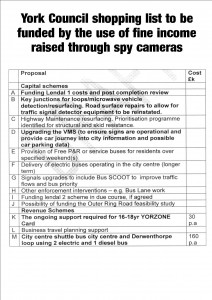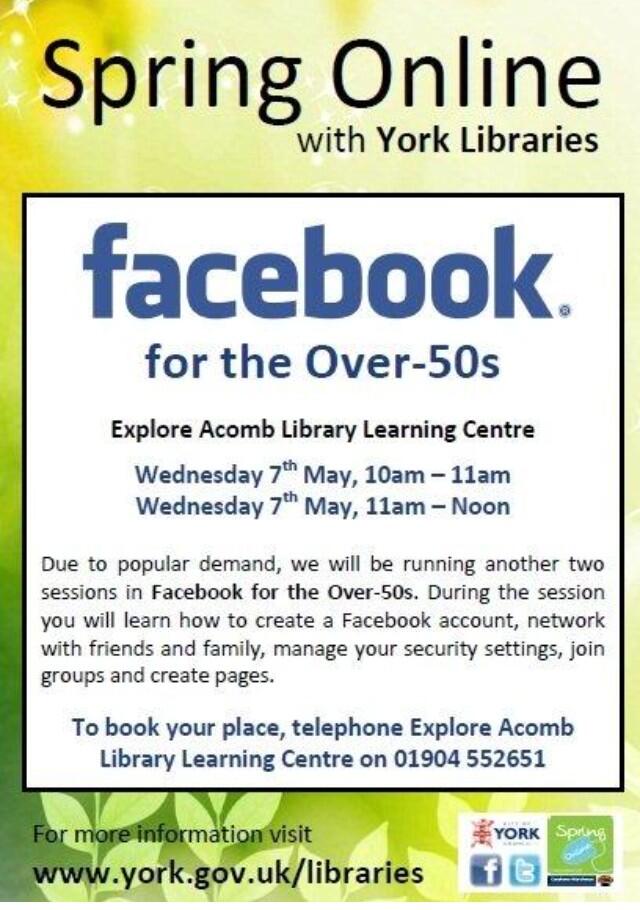@york_travel Furthermore, it is envisaged that the works will only be undertaken overnight between 19:00hrs & 06:00hrs during the closure.
— York Travel (@york_travel) May 6, 2014
Bike sessions for all abilities announced
New and inclusive cycling sessions are starting in May at York Sport Village. A full range of adapted bicycles will be on hand so that everyone will be able to enjoy the one-kilometre track, whatever their age, experience or ability.
The sessions are particularly suitable for those living with a disability or long-term medical condition or older adults who enjoy a slower pace of ride.
There will be three sessions every week and participants can just turn up to any or to all:
· Every Wednesday 5pm to 6.30pm, starting 14 May
· Thursdays 1.30pm to 3.30pm, starting 15 May
· Sundays 12noon to 2pm, starting 18 May.
Lendal Bridge – what Labour were going to say before their U turn
Details of a draft report on the future of the Lendal Bridge traffic restrictions, which was written before the scheme was abandoned, reveal that Labour had intended to continue with the restrictions.
The report was substantially rewritten when it became clear that the Council had been acting unlawfully in fining over 50,000 motorists who had travelled over the bridge during restricted hours. To make that decision, the Council used an arcane interpretation of its own constitution claiming that the Council Leader “could take any decision which would normally be taken by the Cabinet“.
It is clear from the report that key background information was still not available when the Leader took his decision on 8th April.
Although draft reports are often re-written to improve clarity before they are published, there are some glaring differences and omissions from the report being considered by the Cabinet later today (Tuesday).
Reinvigorate York
The original draft claimed that
“de-trafficking of Lendal Bridge and environs also allows buses to be removed from Exhibition Square and makes it easier to deliver the Reinvigorate York scheme there”. In arguing in favour of the restrictions being made permanent the draft report goes on to say,”
The Reinvigorate York schemes proposed for Exhibition Square and Duncombe Place would be limited in scope, reducing the ability to make significant enhancements to the public realm or attract additional footfall to the city centre. Other transport aspirations could also be curtailed, in particular options for, and the operation of, a public transport interchange at the station and the ability to provide journey time and reliability improvements for public transport”.
The final report fails to mention any dependence the “reinvigorate” programme might have on the Lendal Bridge scheme.
Congestion
The final report plays down the effect that the closure has had on traffic congestion.
The original draft admitted, “During the Lendal Bridge trial additional delay and congestion has been experienced at the Water End junction. Analysis of the TrafficMaster data has identified that during the 4pm – 5pm period some journeys can experience significant extra delay”.
The draft implies criticism of the timing of the trial saying that the A59 road works had made congestion worse. The premature timing of the trail was a criticism made by many residents a year ago.
The draft report in admitting major congestion issues at Water End suggests changes to traffic signals at Salisbury Terrace. “Longer term measures are being investigated should the completion of the A59/A1237 road works not resolve the traffic issues in this location. (Cabinet Member briefing note is available and with alteration could be provided as an annex)”.
No annex was provided in the final report.
Visitor Numbers
The draft report said, “Since 2010 there has been a downward trend in footfall in the city centre, approximately 11% reduction in annual total 2010-2013 (as measured in Parliament St)”. The report was annotated to say “What is happening nationally? City centre/out of town?”
No such information is provided in the final report
Also omitted from the final report, but included in the draft, was the comment
“For most of the trial the number of PCNs being issued has remained at a relatively constant level, rather than reduce and plateau as predicted”
Costs
One of the most telling sections of the draft report (and not included in the public version) was an analysis of the increased costs that the trial had accumulated during its 7 month period of operation.



